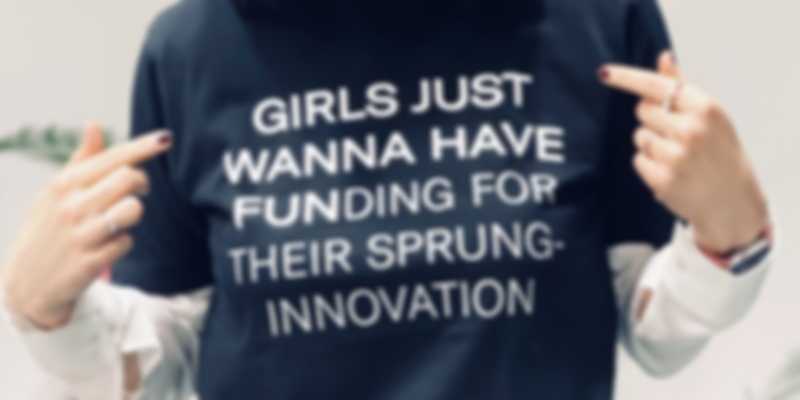Hello Ronja Kemmer!
What was it like being the youngest female member of the Bundestag? How can we get young women excited about AI? And: How do we take advantage of the second wave of digitization in Germany? Tell us about it.
WHAT DO YOU DO, PROFESSIONALLY, ALL DAY? WHAT IS THE EXACT FIELD/DISCIPLINE IN WHICH YOU WORK?
My work as a directly elected member of the Bundestag is very diverse; no two days are the same. My main tasks are, on the one hand, to represent the concerns of the people from my constituency of Ulm in federal politics and then, of course, my technical work in the Bundestag committees. When I'm out and about at appointments in the constituency during the non-session weeks, I come across the entire imaginable range of topics relating to social challenges. I think there is hardly a topic in my conversations with people, be it with nurses, teachers, police officers, entrepreneurs, scientists or environmentalists, for example, that has not come up in the last six years. I consider it a great privilege and an opportunity to hear first-hand what moves people and where we need to improve things politically. I then take that back to Berlin to introduce it there. The variety of discussion partners and topics is very diverse, but at the same time requires the willingness to deal with a wide range of different problems in depth. One should also have the ability to think one's way into different perspectives and build bridges between different points of view and interests. This is especially true for the challenges that have arisen with the Corona pandemic.
When I'm in Berlin during the weeks of the sessions, I basically deal with all these issues there as well. However, matters are more specialized because in the Bundestag committees, in which one is a member, one focuses on certain topics and, as a reporter, also assumes responsibility for clearly defined areas of expertise. Since 2018, I have been a full member of the Committee on Education, Research and Technology Assessment, the Digital Agenda Committee and a deputy member of the Committee on Economic Affairs. From 2018 to 2020, I was also a full member of the Bundestag's Commission of Inquiry on Artificial Intelligence, where I was allowed to coordinate the work of my parliamentary group as chairwoman. Since 2020, I have been the AI representative of my parliamentary group. Through my tasks in the expert committees of the Bundestag, I have very strong access to the topics of innovation and future technologies, with a clear focus on the topic of digitalization. The question of how to quickly turn innovative ideas and new findings from research and development into good, marketable products plays an important role in my political work.
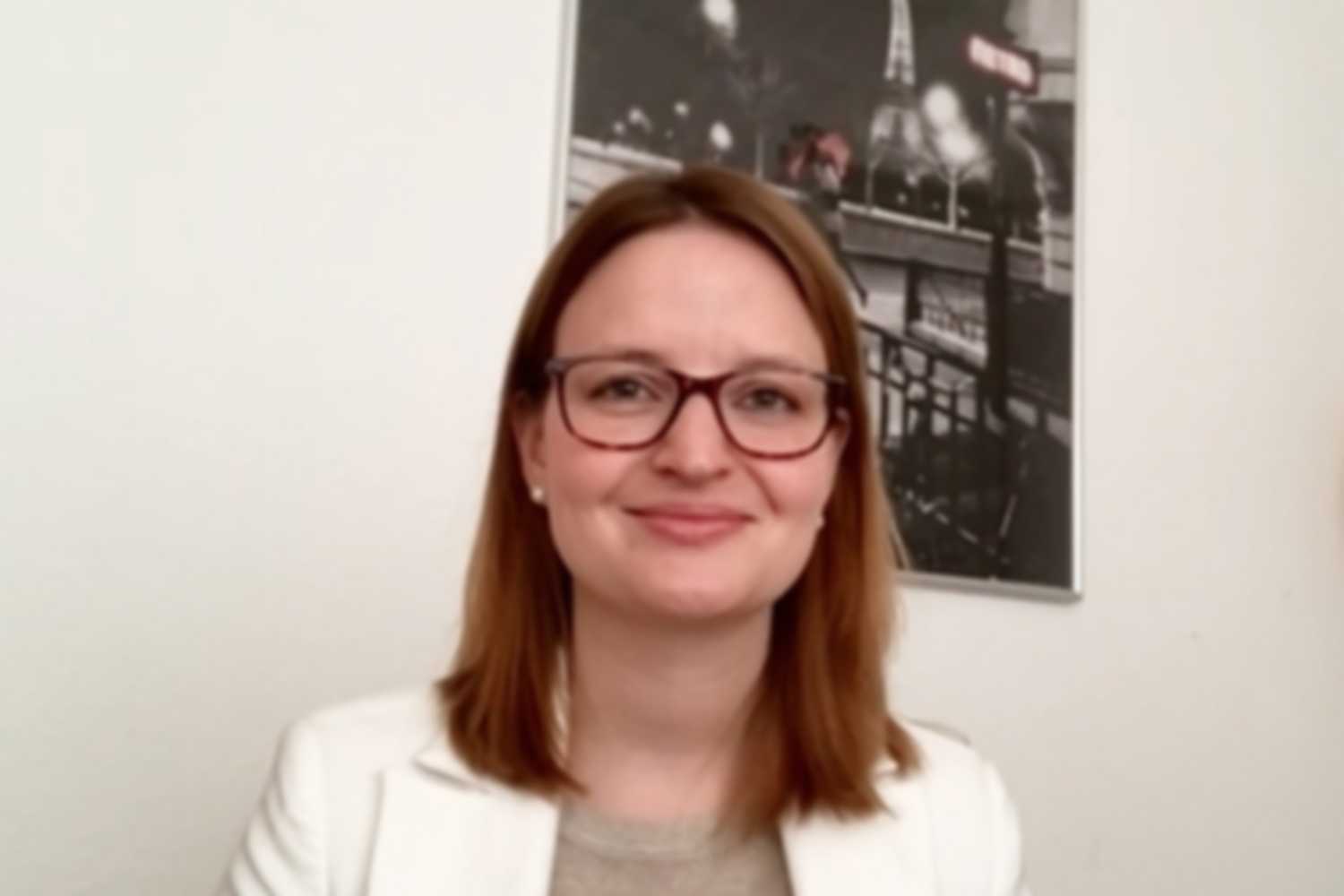
WHAT LED YOU TO TAKE SUCH AN INTEREST IN THIS FIELD/THIS DISCIPLINE? WHEN DID IT BEGIN? AND WHAT HAPPENED NEXT?
Since my school days, I have had a great interest in business topics and a fable for new technologies, especially in the field of digital, which still guides me today. During my studies in economics, I was very interested in the fields of innovation and competitiveness. I have carried this interest into politics as well. I have long been convinced that economic strength and prosperity in Germany are not automatic. Rather, we can only preserve our prosperity for the future if we radically rethink certain areas. Germany has always been a country poor in raw materials; our strength as the home of poets, thinkers and inventors has been to stand at the forefront of new technologies and establish them with economic success.
In recent years, other players have increasingly overtaken us as innovators. In the area of digitization, we have to be self-critical and see that companies from the U.S. and Asia are often faster than we are. This is not because we don't have any good ideas. In many areas of research, we are still at the top of the field or even leading the way worldwide. Rather, it is because we are too slow in transferring new ideas into marketable products and applications. The MP3 player was invented in the Oberpfalz region of Germany, but it was marketed worldwide by a U.S. company. This example is indicative of the first phase of digitalization, which we in Germany have unfortunately largely slept through. Where are the leading German companies in the platform economy or in games? In the second wave, with artificial intelligence, blockchain and the Internet of Things, we must not allow this to happen to us again, that we sleep through the development and miss the opportunity. We have very talented brains in Germany, and great university and non-university research institutions. We need to put good ideas on the road quickly and decisively.
WHAT STUMBLING BLOCKS DID YOU ENCOUNTER IN YOUR CAREER PATH, AND HOW DID YOU OVERCOME THEM?
I would speak less of stumbling blocks being put on my path, but rather of the fact that there were challenges in every phase of life that I had to overcome piece by piece. Like everyone!
Probably the biggest challenge in my life so far was moving up into the Bundestag in 2014 at the age of 25. At that time, I was the youngest member of the German Bundestag. I had not yet completed my master's degree at that time, and I had definitely not planned on a mandate. As a newcomer in the Bundestag, one has to face many unknown challenges: Straight out of university, I was faced with the task of managing my own team of employees. On top of that, there was a whole bunch of bureaucracy: I had to set up a new office and for every piece of equipment, every single folder, there is a form. Even though I was generally welcomed openly by my colleagues and the citizens, there is no hiding the fact that you have to earn people's respect through hard work. It helped me to build a team that I could rely on, but which also knew my weaknesses. Just as important, however, was the support from my private environment - a privilege that not every woman has.
DID YOU CONSIDER YOUR GENDER TO BE AN ADVANTAGE, A DRAWBACK OR A NEUTRAL FACTOR IN YOUR CAREER?
I don't think there is a clear answer here. At the beginning of my work in the Bundestag, there was a lot of media interest. Being the youngest female member of parliament attracted a lot of attention - probably more than it would have with male colleagues. That certainly helped me to become known in my constituency. Gender doesn't play a role in the work of the parliamentary group and the party. Why should it? I had to make negative experiences, for example, with explicitly or implicitly misogynistic comments on the Internet and in e-mails. Female members of parliament are much more likely to have their competence questioned, especially in digital policy.
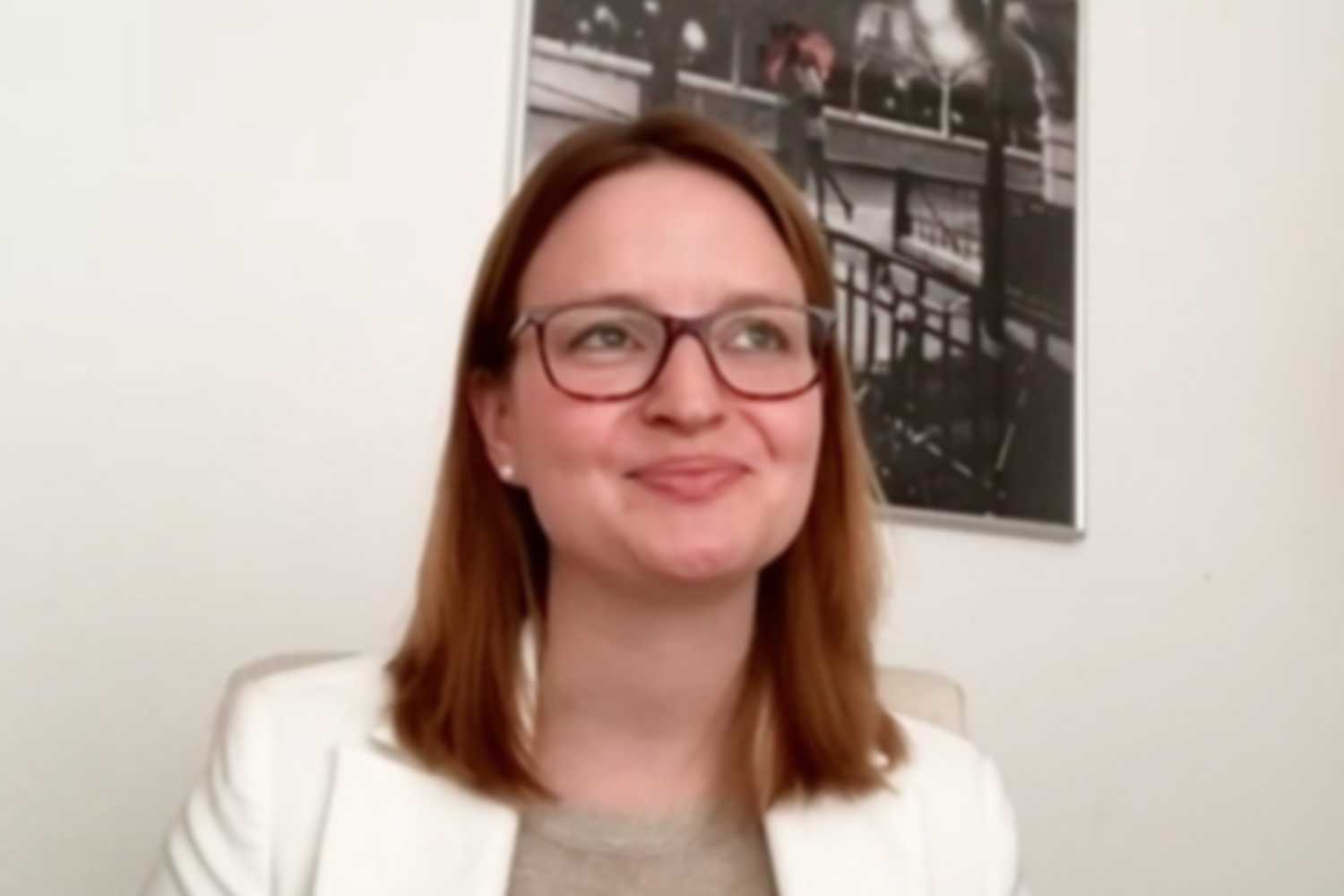
WHAT DRIVES YOU ONWARD AND UPWARD? (WHAT ARE THE SOURCES OF YOUR VERTICAL STRESS?)
I entered politics because I want to make a difference. My parents' and grandparents' generation left us a country where we live in prosperity, have a well-functioning welfare state, a good education system and comprehensive healthcare for everyone. We live in a country where we have a strong social network, where we can help people who need support, but where we can also make a strong humanitarian contribution in international crises when people are in need. I see it as my task to work to preserve these achievements for future generations. The basic prerequisite for a strong Germany of tomorrow is to make our economy innovative and competitive.
At the same time, I have always been personally enthusiastic about quickly seizing opportunities that lie ahead and driving innovation forward. When I visit startups or SMEs, for example, and see how passionately and personally they develop and tackle ideas, but then can' t get off the ground because of the wrong framework conditions, it gets my pulse racing. Unfortunately, we in Germany often tend to want to secure and regulate things from the state side down to the very last detail in advance. There are undoubtedly positive sides to this, but in some cases it tends to stifle innovation. The innovation then takes place elsewhere. And we end up buying it from abroad instead of using it to create value in our own country. What also drives me is that we need to improve the conditions for startups in Germany. When I see that young founders come to us with a great idea, but are forced to go abroad because of a lack of financing options or overly complicated bureaucratic requirements, then that has to give us food for thought. I'm very concerned about that, and I see it as my job to help us become better in this area.
WHICH BREAKTHROUGH INNOVATION HAS IMPRESSED YOU THE MOST?
I think the invention of the World Wide Web. To be precise, the phase when a worldwide network for all users was established from the military Internet precursor ARPANet after it was shut down. The possibility of connecting all people worldwide is a real turning point for me. Unfortunately, the free Internet as we know it is increasingly under pressure from authoritarian regimes that are also technologically driving a fragmentation of the network. For the preservation of a free and pluralistic Internet, it is important to counter this. A good framework for this is the Internet Governance Forum (IGF), in which civil societies, states and industry work closely together.
WHAT IS YOUR VIEW OF THE CULTURE AND LANDSCAPE FOR INNOVATION IN GERMANY (AND IN EUROPE)? WHAT WORKS WELL? AND WHAT DOES NOT WORK? WHAT DO WE NEED IN GERMANY TO SPAWN MORE SUCCESSFUL INNOVATIONS?
I have already touched on a few points. Overall, we must focus on the greatest possible agility and freedom of mobility in the promotion of innovations. We need funding structures that are highly attractive to innovators and founders.
Where we need to do even better is in the area of spin-offs from science. To achieve this goal, we need to provide a comprehensive offer of well-structured counseling. Scientists need good guidance even earlier than before on the question of whether and how start-ups can succeed. These aspects must be integrated into the development chain at an early stage. I also think it is important that we measure science more closely in terms of the social goals achieved by spin-offs. Here, we need to examine where the promotion of knowledge-intensive start-ups should be incentivized as a non-profit
purpose" during the pre-competitive and pre-foundation phase with appropriate support and attractive free services. Another area where efforts should be made is to improve the data on the willingness to found start-ups, on the perception of start-up support and on start-up activity in Germany. In other words, we need a systematic benchmarking system for transfer activities.
I believe it is crucial that we continue to expand European cooperation in the area of research and innovation. When we look at the major technologies of the future, such as AI, it is clear to me that we alone as Germany have no chance in global competition with players like the USA or China. That's why we need to further strengthen the European integration of our research in the high-tech sector. Successful AI, to stick with the example, always depends on the availability of computing power and the necessary hardware. Within the EU framework, we must therefore press ahead with the joint expansion of high-performance computing capacities and the development of expertise in semiconductor technology. To create innovation in our country, we must also compete for the most innovative minds. Europe can be an attractive destination for top scientists, especially if researchers have the opportunity to work at several locations in the EU within a multi-year research program.
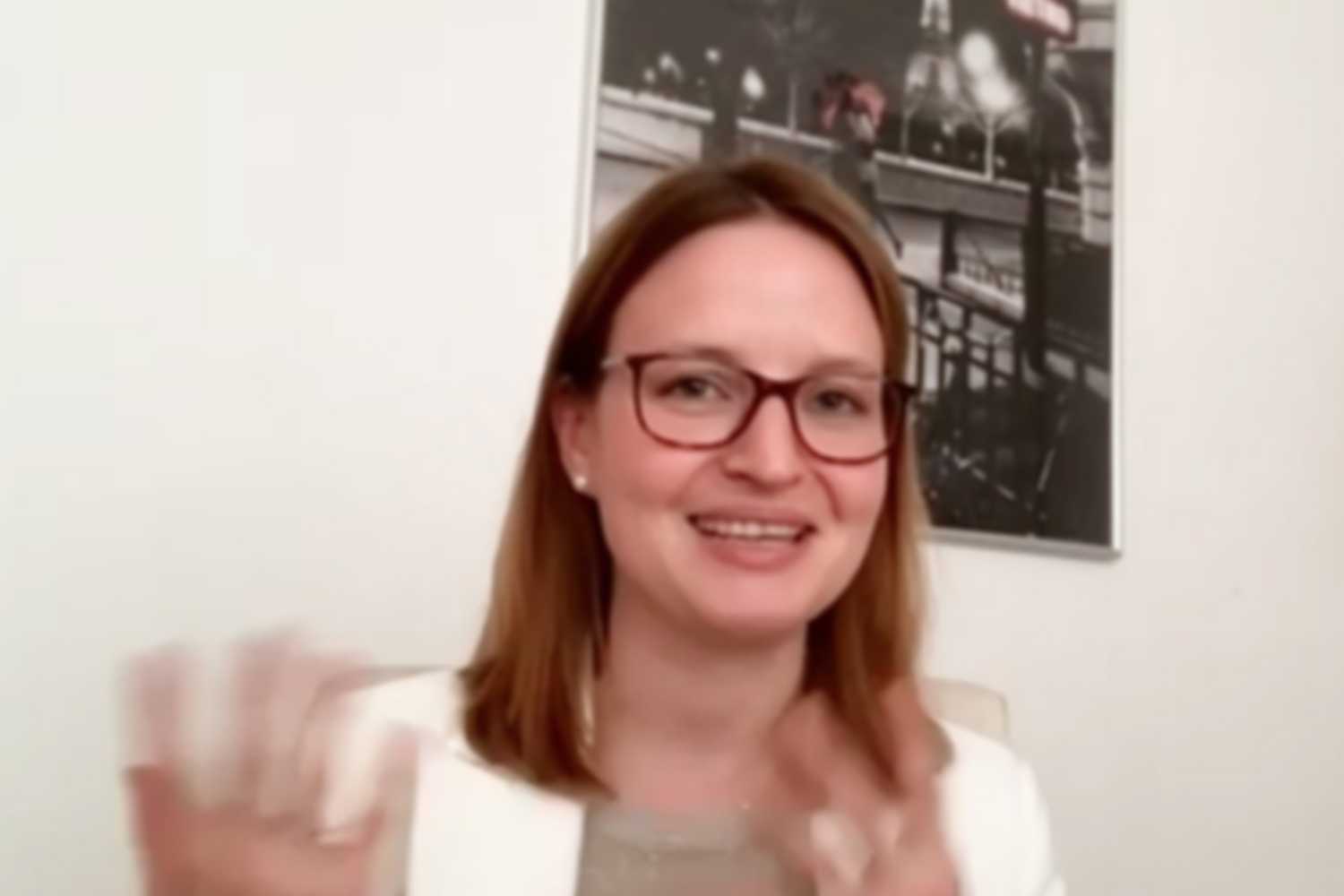
WHERE/IN WHAT SECTOR/FIELD/AREA IS INNOVATION PARTICULARLY LACKING?
There are a number of areas where we need to do better. What worries me is the reluctance of midsize companies to use digitalization in general, but especially in the use of AI. SMEs are the powerhouse of our economy. The fact that, according to current figures, 77 % of SMEs in Germany have not yet invested in AI at all may soon have an impact on their international competitiveness.
Germany also has a lot of catching up to do in terms of enabling more innovation in the area of e-government. In the EU Commission's current Digital Economy and Society Index
for 2020, we are ranked 21st within the EU in the category Digital Public Services.
The ability to access fast and efficient administrative services also directly affects research institutions, companies and start-ups, and impacts the speed at which innovations can be advanced.
IS IT IMPORTANT TO PROMOTE WOMEN SCIENTISTS AND INNOVATORS DIFFERENTLY AND MORE FORCEFULLY? DO YOU HAVE ANY IDEAS ABOUT THAT?
A look at the figures alone makes the need more than clear. According to UNESCO, only 29 % of researchers in Germany are female. In science, it is a fact that the higher the hierarchical level, the lower the proportion of women. The picture is similar for startups: Less than 20 % are founded by women.
Of course, there is a need for further improvements in the framework conditions, for example in the compatibility of career and family. But it is also important to change mindsets. Girls often want to do something social.
But hardly anything requires as much social skills as starting a business. As a member of the Digital Agenda Committee and AI representative of my parliamentary group, I experience on a daily basis how diverse and also social the occupational fields of computer science are, for example. This needs to be made clearer in schools, universities and career guidance.
I am convinced that we need to give girls the opportunity to come into contact with STEM at an early stage. This is also how to awaken their enthusiasm. Politicians are trying to support this with initiatives such as Girl's Day - Mädchen Zukunftstag
or Klischeefrei
and the Erfolg mit MINT - Neue Chancen für Frauen
program. In my opinion, the subject of computer science in particular needs to be strengthened in schools. Of course, the universities themselves also have a role to play. Interdisciplinary study programs, for example, can be more appealing to women. Female students from other disciplines should also have the opportunity to look beyond their own horizons and into technical disciplines, for example, in the elective area.
WHAT BREAKTHROUGH INNOVATION DO YOU ABSOLUTELY WANT TO SEE COME ABOUT? / WHAT BIG PROBLEM WOULD YOU LIKE TO SOLVE?
I would like to see new and groundbreaking drugs against diseases being developed in the future on the basis of what I see as the huge innovative power of the mRNA mechanism. This would be a blessing for the many millions of people affected.
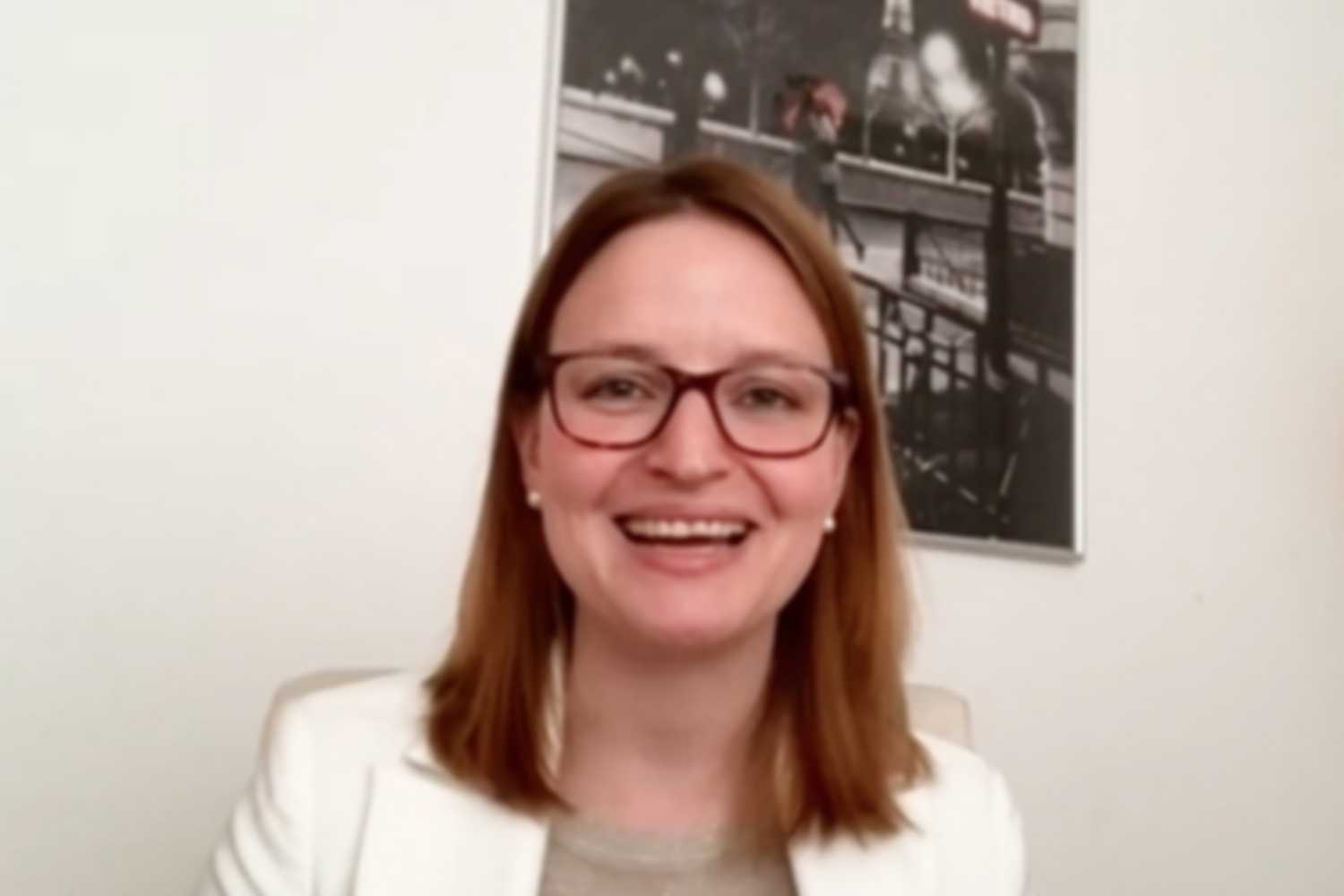
Ronja Kemmer studied Economics in Germany, Sweden and Italy and is member of the German Bundestag since 2014. She is member of the Committee on Education, Research and Technology Assessment, of the Committee on the Digital Agenda and furthermore substitute member oft he Committee on Economic Affairs and Energy. Mrs. Kemmer used to be Spokesperson of CDU/CSU in the Study Commission Artificial Intelligence – Social Responsibility and Economic, Social and Ecological Potential and is Commissioner for Artificial Intelligence of the CDU/CSU parliamentary group. Ronja Kemmer is a member of the supervisory board of the federal agency for breakthrough innovation.
